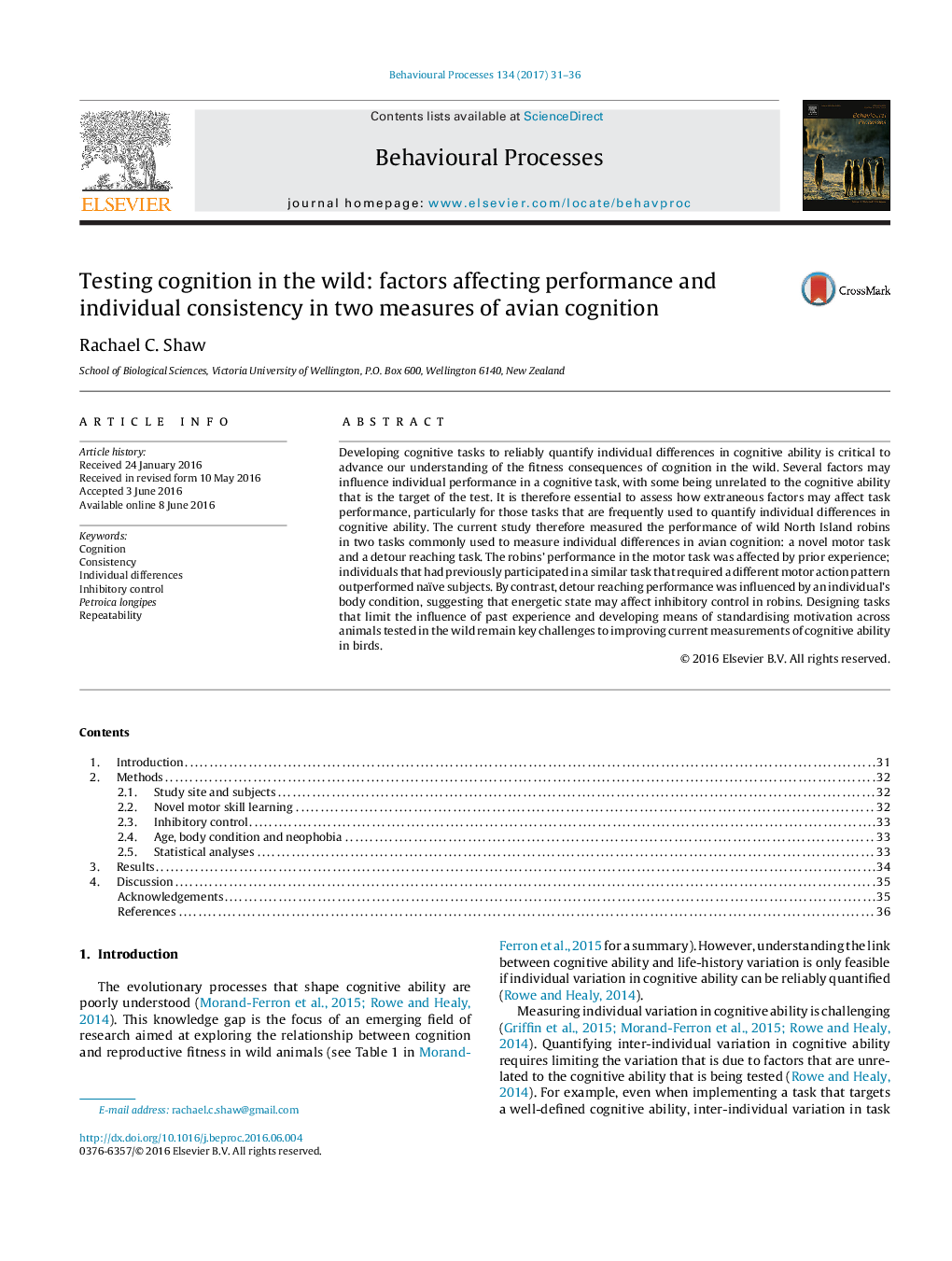| Article ID | Journal | Published Year | Pages | File Type |
|---|---|---|---|---|
| 5539814 | Behavioural Processes | 2017 | 6 Pages |
â¢North Island robins completed two tasks commonly used to assess avian cognition.â¢Experienced robins outperformed naïve individuals in a novel motor task.â¢Body condition affected detour reaching, which was used to measure inhibitory control.â¢Non-cognitive factors reduced individual consistency in cognitive task performance.â¢In future, cognitive task designs should limit the influence of extraneous factors.
Developing cognitive tasks to reliably quantify individual differences in cognitive ability is critical to advance our understanding of the fitness consequences of cognition in the wild. Several factors may influence individual performance in a cognitive task, with some being unrelated to the cognitive ability that is the target of the test. It is therefore essential to assess how extraneous factors may affect task performance, particularly for those tasks that are frequently used to quantify individual differences in cognitive ability. The current study therefore measured the performance of wild North Island robins in two tasks commonly used to measure individual differences in avian cognition: a novel motor task and a detour reaching task. The robins' performance in the motor task was affected by prior experience; individuals that had previously participated in a similar task that required a different motor action pattern outperformed naïve subjects. By contrast, detour reaching performance was influenced by an individual's body condition, suggesting that energetic state may affect inhibitory control in robins. Designing tasks that limit the influence of past experience and developing means of standardising motivation across animals tested in the wild remain key challenges to improving current measurements of cognitive ability in birds.
